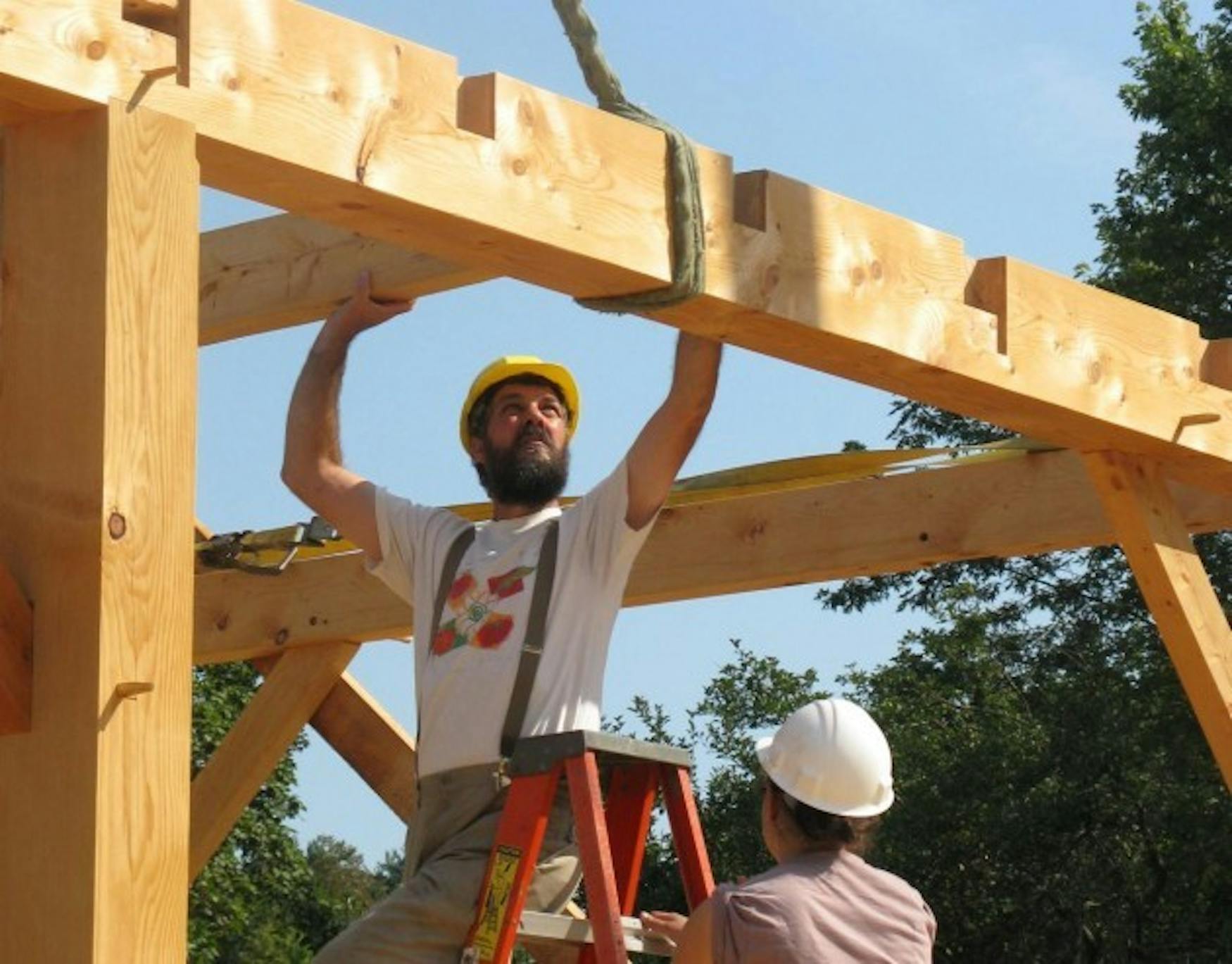Environmental ambition
Prof. Donahue i82 promotes land and forest preservation
While some professors decide to spend their sabbaticals in a lab conducting research or in a library surrounded by books, Prof. Brian Donahue '82 (AMST) prefers to be directly in the field. Specifically, on a 170-acre farm that he and his family purchased in the town of Gill, Mass. Since Donahue has been on sabbatical from the University, he has continued to pursue his lifelong passion of environmental conservation and protection through buying the farm, which he learned about through friends.
"For a long time, my wife and I and our family were interested in finding a place that was further out in the countryside to eventually live. It's taken longer than we thought, I mean it's taken 35 years to find this but that's the way it goes sometimes," Donahue said in an interview with the Justice. According to Donahue, the town in Massachusetts protected the farm through their agricultural preservation restriction program. The state buys the development rights to the land so that it remains in the agriculture sector and cannot be developed but is still available to purchase.
Donahue left Brandeis to start a different project, Land's Sake, a community farm in Weston, Mass., which he subsequently directed for 12 years. According to the mission statement its goal is to "connect people to the land." He then returned to Brandeis to finish his undergraduate education while he was "also running this crazy community farm in Weston. I was kind of a busy guy, and I took a long time to finish it all up," Donahue said. He then went on to get his Master's in 1993 and his subsequent Ph.D. in 1995 from Brandeis while working with Prof. David Hackett Fisher (HIST) and Prof. emeritus Don Worster (HIST).
Today he is applying his knowledge to his new project in Gill. "I had a chance with a couple friends of ours, actually, to buy this nice little farm out there four years ago, which we did, and now we've got this farm which is two hours away," Donahue said. It's [a] little bit difficult logistically, but it's a great place, and we're sort of working to bring it back into good shape. We've repaired the barn and it has a lot of good hay and grassland."
Happy to be in his natural element, Donahue said, "It's fun [to] have a new farm to look after again since we've been here for so long in Weston." However, Donahue has not shirked his responsibilities close to home. His wife is still a part of the Land's Sake board, and he remains an active member of the conservation commission that owns the land.
Besides establishing a farm, he is also in the process of building a house on the land using timber from the woods on his new property. He describes the construction as a "very enjoyable project," designing a house that makes use of his cherry trees and hemlocks. "I wanted to do a project that demonstrated local use of wood which is comparable to trying to produce more food locally. … We have a lot of forest here in New England and Massachusetts that we don't really utilize very much and it could be used sustainably. It's a good way to make connections with the land," Donahue said.
His official sabbatical project, however, is often overlooked in the shadow of his recent land purchase. While constructing his house, he is working on a book about the Eastern Forest, a series of woodlands that runs between New England and Mississippi. His focus is on its history, ecology and future conservation. This project relates to his work with Harvard Forest, an organization that "for the last 10 years or [Harvard Forest] has been putting forth proposals to protect forest land on a very large scale in the state of Massachusetts and all six New England states."
Donahue's goal is ambitious: he "hope[s]over the next 50 years, 70 percent of New England should be in permanently protected forest, most of that sustainably harvested and some of it in wild reserves." He will then set his sights on protecting the entire Eastern United States, all 500-million acres. His house "exemplifies that kind of relationship with the forest."
He then raises the issue of managing both teaching and his work on the farm, "We'll keep working away the way we all do. Teaching does take time." His philosophy about farming is to "set it up so you're not all out there on your lonesome. … No one farmed that way back if you look at colonial New England. ... You'd be a real fool to farm by yourself. … This idea that it's just me and my individual farm out their on the frontier gets pretty lonely," he adds.
"The point for us is to identify what kind of land might be available and what would be those things that we could produce locally or within the region from which we would get the greatest environmental and social benefits. ... Growing everything locally is not an option and not a good idea. It's a very bad idea, but to grow some things locally is a good idea. ... We just need figure out which is which," he said.
The outcome of this ambitious project is unknown: "We've been casting it as a vision. There are plenty of people working away on trying to get it to happen and that's of course what needs to be done but I'm unable to predict whether or not we'll succeed." Despite the uncertainty, Donahue believes "the point of this work is to put out a reasonable goal that may be very ambitious but is actually achievable and isn't that fantasy. You put out a goal to protect 70 percent of New England and its forests—that's pretty ambitious."



Please note All comments are eligible for publication in The Justice.